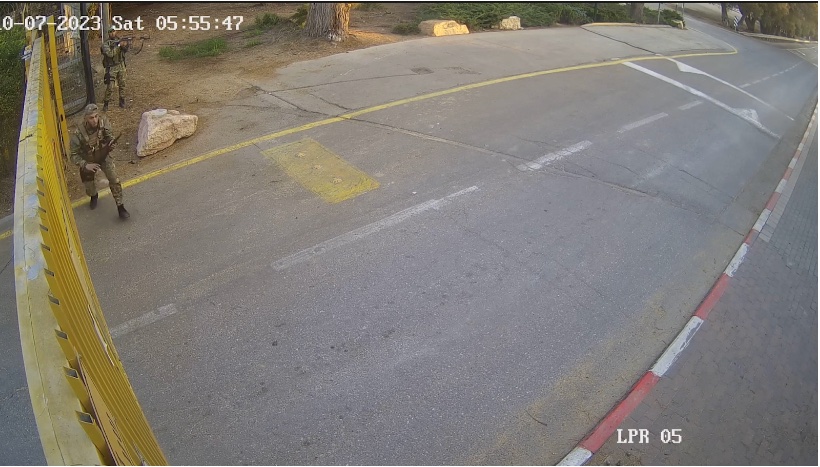During a Sunday interview with CNN host Fareed Zakaria on Fareed Zakaria GPS, Mustafa Barghouti, general secretary of the Palestinian National Initiative (PNI), claimed that ongoing Hamas attacks against Israel have not been targeted at civilians. The PNI, a Palestinian political party formed in 2002, claims to be a democratic third force that is opposed to both Hamas in Gaza and Fatah in the West Bank. “What Hamas is doing is they are targeting Israeli civilians, women, children, grandmothers,” Zakaria said to Barghouti. “No, they are not,” Barghouti replied. “I think Hamas mainly attacked military establishments, military installations, and most of the people there, they have arrested and taken as war prisoners are military people,” he continued.
According to the Israeli government, as of October 9 more than 900 Israelis had been killed and at least 2,400 injured in the attacks. Additionally, Hamas has taken more than 130 hostages in the country, including women, children, babies, the elderly, and the disabled. While many of those killed have been members of the Israeli military and police, the claim that Hamas has not targeted civilians in its attacks is false.
At the Tribe of Nova music festival alone—which took place just three miles west of the Israel-Gaza border—more than 260 bodies have been discovered by ZAKA, a volunteer organization that assists in recovering human remains following attacks and natural disasters. Israeli authorities believe that number could still rise as the festival grounds are searched, and some bodies were likely removed and taken back to Gaza. Hamas terrorists arrived at the grounds in the early hours of Saturday morning and fired upon festival attendees, killing those fleeing and executing others at close range. According to reports from survivors, it took the Israeli Defense Force (IDF) more than six hours to reach the site, meaning most—if not all—of the casualties recorded at the site were civilian.
A large number of villages and kibbutzim were also attacked directly by Hamas. On Monday night, Zaka announced that it had found more than 100 bodies at Kibbutz Be’eri near the Gaza border. In video surveillance footage released on Telegram by IDF responders, two Hamas militants can be seen ambushing a civilian vehicle as it opens the front gate, killing the driver before infiltrating the kibbutz.

Similar images have emerged in Israeli Telegram channels from Yakhini, Kfar Aza, and Re’em where houses were destroyed, civilians executed next to their vehicles, and families and pets shot dead in their homes.

Attacks such as these on civilian targets were premeditated and highly planned. IDF forces on Telegram posted photos of maps they recovered at a number of kibbutzim and villages near Gaza. The maps divided villages into specific areas of operation and provided information in Arabic for Hamas attackers.
The highly coordinated Hamas attacks also featured a barrage of rockets fired from Gaza, with most landing in southern and central Israel. The IDF estimates that approximately 4,500 rockets have been launched thus far. Despite the highly effective Iron Dome missile defense system—which boasts a 90 percent interception success rate—hundreds of Hamas’ rockets have impacted targets throughout Israel, including civilian locations such as a hospital in Ashkelon and residences in Tel Aviv.
A look into Hamas’ own charter offers additional fortification of its deliberate targeting of civilians. “The Day of Judgement will not come about until Muslims fight the Jews (killing the Jews), when the Jew will hide behind stones and trees,” the charter says. “The stones and trees will say O Muslims, O Abdulla, there is a Jew behind me, come and kill him.”
CNN did not immediately respond to a request for comment.
If you have a claim you would like to see us fact check, please send us an email at factcheck@thedispatch.com. If you would like to suggest a correction to this piece or any other Dispatch article, please email corrections@thedispatch.com.







Please note that we at The Dispatch hold ourselves, our work, and our commenters to a higher standard than other places on the internet. We welcome comments that foster genuine debate or discussion—including comments critical of us or our work—but responses that include ad hominem attacks on fellow Dispatch members or are intended to stoke fear and anger may be moderated.
With your membership, you only have the ability to comment on The Morning Dispatch articles. Consider upgrading to join the conversation everywhere.